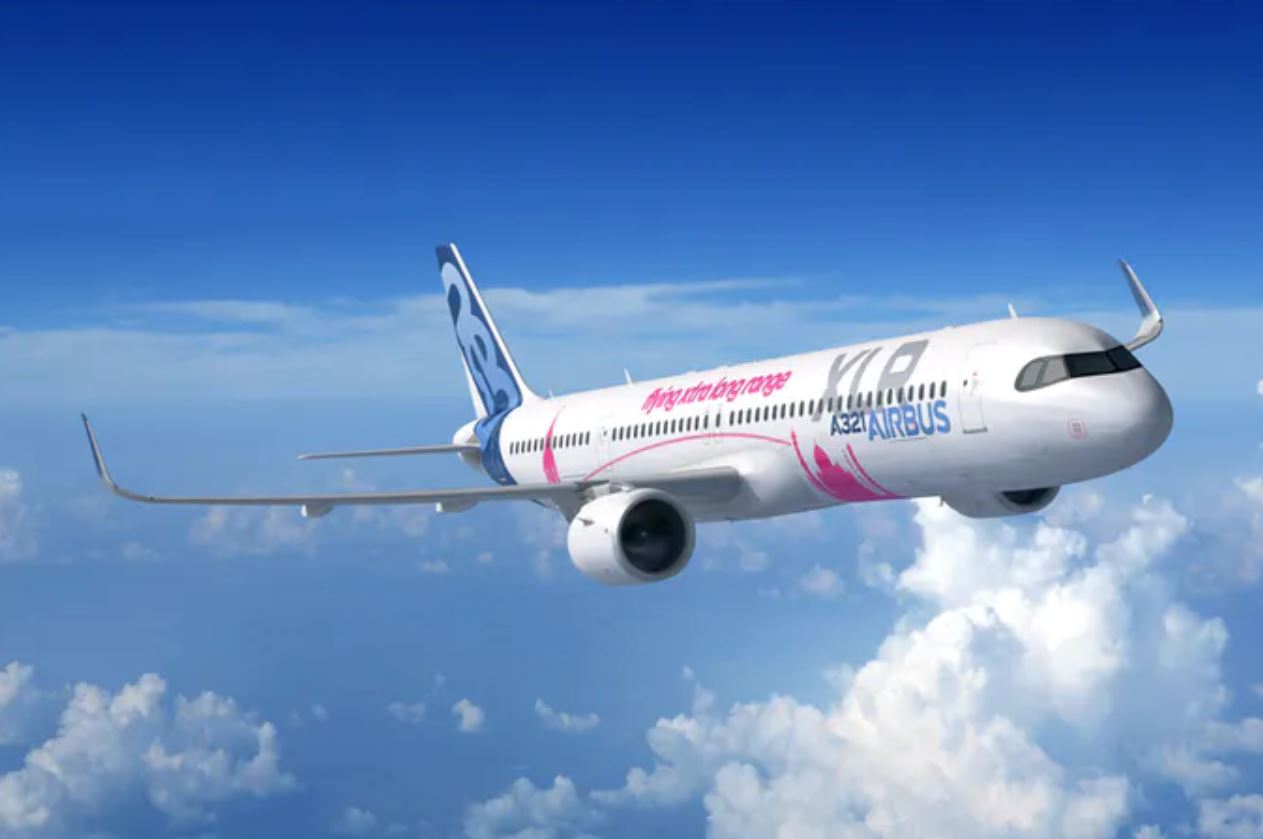After eight years of Boeing leadership, Airbus has again become the world’s leading aircraft manufacturer. The European group surpassed 1,000 aircraft orders in 2019 and broke its record of aircraft delivered with 863 units. By comparison, Boeing delivered a mere 345.
The A320, launched in 1988, became the bestselling aircraft of all time, outnumbering the Boeing 737, which is 20 years older. In addition, from January 2020, Boeing suspended production of the 737 Max, once a bestseller but currently banned from flying because of two crashes in October 2018 and March 2019.
According to Airbus commercial director Christian Scherrer, Boeing’s difficulties are not benefiting its European competitor – the firm’s production capacity does not allow it to deliver new customers before four years. However, Airbus continues to accumulate orders, including from customers once loyal to Boeing. In addition, it is likely that the 10% tax on aircraft imports into the United States is a direct result of Boeing’s troubles.
Suppliers General Electric and Safran have been heavily affected by the 737 Max crisis, an aircraft exclusively equipped with the LEAP engine that they co-developed. The joint subsidiary CFM International has negotiated with Airbus to increase the percentage of A320neo aircraft that use this engine to compensate for the losses associated with the 737 Max. Hundreds of European suppliers that also work for Airbus are also financially affected.
Presentation of the LEAP (Leading Edge Aviation Propulsion) high-bypass turbofan that power A320neo airplanes.
Relative successes for Airbus
Although 2019 was marked by the end of the A380, considered a commercial flop, Airbus has exceeded the symbolic mark of the 20,000 planes sold since its creation. The company also won many battles against Boeing last year. The A320, A320neo, A321, A321neo and A350 models are particularly popular with airlines. The A321 XLR is part of a sustainable development strategy: it consumes a third less of kerosene, which gives it a much greater radius of action and reduces costs per passenger.
The A321 XLR will replace the A380 on the aircraft market.
United Airlines ordered 50 ultra-long-haul Airbus A321 XLRs for about $6 billion. These aircraft are intended to replace Boeing 757s and are expected to enter service in 2024. Thanks to this innovative plane, which as presented by Airbus at the 2019 Paris Air Show, the company will be able to reduce significantly its carbon footprint and benefit from the long-range capabilities to add new destinations.
Cebu Pacific Air, the leading airline in the Philippines, confirmed an order for five A320neo and ten A321 XLR on December 19, after having finalized another of 16 A330neo, which makes a total of 21 aircraft for approximately $6.8 billion in 2019. This is nothing compared to the record order from one of the fastest-growing airlines in the world: the low-cost Indian company IndiGo. In October, it ordered 300 A320s, including several A321 XLRs, worth $33 billion. When delivered, IndiGo will reach a total of 730 A320s, making it the largest customer for this model.
Airbus has also been selected by Quantas to operate the longest flight in the world: 20 hours to cover the 10,500 miles (17,000 km) between London and Sydney. In December 2019, after launching a tender to the two manufacturers, Quantas announced that it was choosing the A350-1000 rather than the Boeing 777X.
New touch-screens cockpit displays in Airbus A350 XWB.
Airbus’s situation seems solid and the future looks bright. The group may hire between 1,500 and 2,000 people in France, and potentially 5,000 worldwide. The group has exceeded US$100 billion in market valuation, Airbus shares rose 59% in 2019](https://www.lefigaro.fr/conjoncture/ces-entreprises-qui-font-flamber-le-cac-40-20191229) and the company begins 2020 at the top of the French stock market index CAC40.
Still, Airbus’s leadership position remains fragile. If the symbolic threshold of 1,000 aircraft ordered may seem satisfactory, it is already the sixth time that the group has exceeded it, and this remains well below the record set in 2013 with 1,503 orders. Production is struggling to keep up with sales, as the most popular models are victims of their success. Some current deliveries are late and the increase from 60 to 63 aircraft per month between 2019 and 2021 will not significantly improve things.
A multidimensional crisis for Boeing
Boeing is currently going through the worst crisis since it was founded in 1916. This crisis is deep, lasting and multidimensional. Above all, it is a reputational crisis, the group having entered a spiral of failures and an era of suspicion. Multiple charges of negligence and willful intention to deceive the authorities could be confirmed by internal documents transmitted to the US Congress in December 2019.
Boeing to halt 737 Max production after damaged reputation.
After two 737 Max crashes that left 346 dead, many passengers have completely lost confidence in the plane: 40% of travelers are ready to pay more or take less practical flights to avoid it. New theories question the safety of other software-independent parts of the aircraft.
The crisis is also technological, Boeing has had significant difficulties finding reliable solutions to the various dysfunctions of its planes. This in turn led to an industrial crisis: after severely slowing down the production of the 737 Max, Boeing stopped it completely in January 2020. Although 12,000 people work directly in the production of the 737 Max, Boeing does not plan to lay off workers for the time being. The consequences may be particularly difficult for the suppliers most dependent on Boeing to bear.
Boeing also faces a legal crisis: lengthy and costly lawsuits from victims and airlines could well further tarnish the company’s image. The financial consequences are already considerable with 10 billion euros of cash provisioned to deal with the direct and indirect consequences of the crashes. If the manufacturer had US$20 billion in funds a few months ago, it would consider increasing its debt by at least US$5 billion to meet expected costs in the first half of 2020.
Turkish Airlines reach 737 Max aircraft compensation deal from Boeing.
To cope with the managerial dimension of the crisis, a financial expert, David Calhoun, was chosen to succeed the engineer Dennis Muilenburg as CEO of Boeing from January 13, 2020. Muilenburg was severely criticized for his handling of the crisis and had to resign. Among other things, he was accused of not respecting the independence of air-transport regulatory authorities and not reacting quickly enough.
Major geopolitical issues
Naturally, Boeing’s difficulties and Airbus’ success are not to the liking of US president Donald Trump, who saw a large part of the GDP of the United States evaporate. The competition between the two has fueled the trade war between EU and US, which in October 2019 decided to apply a 10% tax on imports of European aircraft. Airbus management denounces an unfair decision directly linked to the current fragility of the Boeing group.
WTO sides with US in Airbus subsidy case, allowing US to target $7.5B in EU imports.
Airbus and Boeing must prepare for the entry into the market of a strong competitor. In 2017, the Chinese group Comac (Commercial Aircraft Corporation of China) and the Russian consortium UAC (United Aircraft Corporation) created the joint venture CRAIC (China-Russia Commercial Aircraft International Corporation) in order to launch aircraft they claim are as efficient as those of Airbus and Boeing, but less expensive.
For presidents Xi Jinping and Vladimir Putin, this alliance is part of a major strategic move toward Sino-Russian collaboration. The friendship between the two presidents has led them to join forces against the United States and the trade policy of the government of Donald Trump. The CR929 will be a direct competitor to the A350 and the B787. With a budget of US$20 billion, this aircraft is scheduled to enter service between 2025 and 2028.
Oihab Allal-Chérif does not work for, consult, own shares in or receive funding from any company or organization that would benefit from this article, and has disclosed no relevant affiliations beyond their academic appointment.



 Anta Sports Expands Global Footprint With Strategic Puma Stake
Anta Sports Expands Global Footprint With Strategic Puma Stake  Elon Musk’s Empire: SpaceX, Tesla, and xAI Merger Talks Spark Investor Debate
Elon Musk’s Empire: SpaceX, Tesla, and xAI Merger Talks Spark Investor Debate  DBS Expects Slight Dip in 2026 Net Profit After Q4 Earnings Miss on Lower Interest Margins
DBS Expects Slight Dip in 2026 Net Profit After Q4 Earnings Miss on Lower Interest Margins  SpaceX Prioritizes Moon Mission Before Mars as Starship Development Accelerates
SpaceX Prioritizes Moon Mission Before Mars as Starship Development Accelerates  Missouri Judge Dismisses Lawsuit Challenging Starbucks’ Diversity and Inclusion Policies
Missouri Judge Dismisses Lawsuit Challenging Starbucks’ Diversity and Inclusion Policies  Uber Ordered to Pay $8.5 Million in Bellwether Sexual Assault Lawsuit
Uber Ordered to Pay $8.5 Million in Bellwether Sexual Assault Lawsuit  Nasdaq Proposes Fast-Track Rule to Accelerate Index Inclusion for Major New Listings
Nasdaq Proposes Fast-Track Rule to Accelerate Index Inclusion for Major New Listings  American Airlines CEO to Meet Pilots Union Amid Storm Response and Financial Concerns
American Airlines CEO to Meet Pilots Union Amid Storm Response and Financial Concerns  Samsung Electronics Shares Jump on HBM4 Mass Production Report
Samsung Electronics Shares Jump on HBM4 Mass Production Report 
































